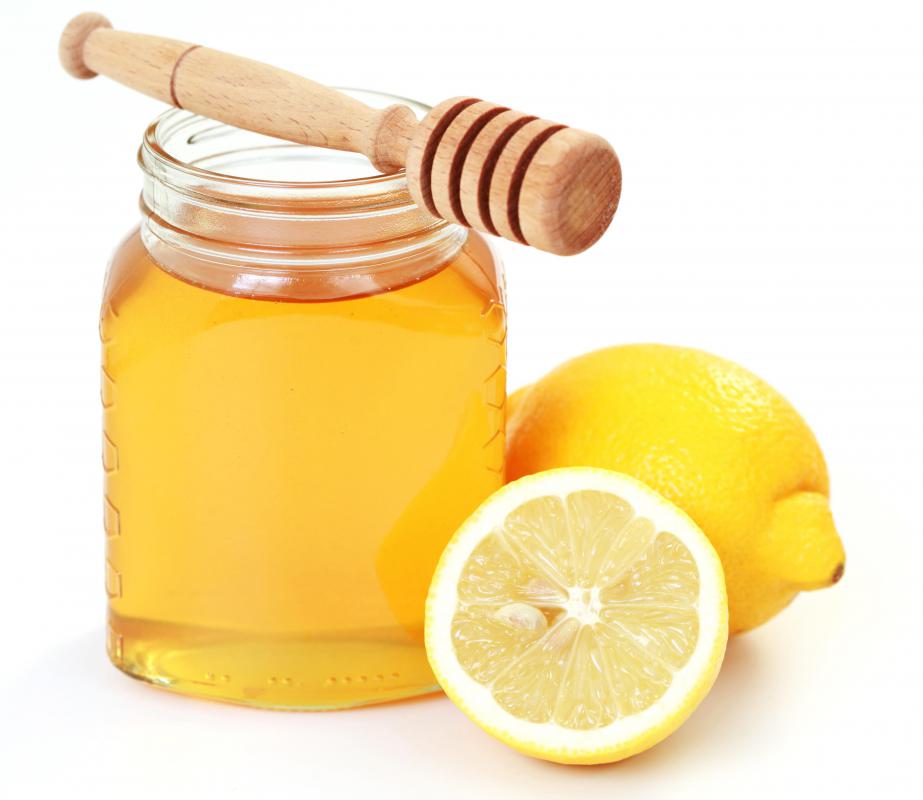At WiseGEEK, we're committed to delivering accurate, trustworthy information. Our expert-authored content is rigorously fact-checked and sourced from credible authorities. Discover how we uphold the highest standards in providing you with reliable knowledge.
What is a Cough Suppressant?
A cough suppressant, or antitussive, is any substance that reduces or suppresses a cough. It acts on the part of the brain that controls the cough reflex in order to stifle the urge to cough. Dry, tickling, irritating coughs — ones that don’t produce any phlegm or mucus — are good candidates for cough suppressants, especially those that make it difficult to sleep or noticeably interferes with regular daily activities. These coughs are mostly, thought not necessarily, associated with colds or the flu.
A cough that does produce mucus should not be treated with a suppressant because coughing up mucus helps clear the lungs, reducing the chance for infection-causing bacteria to settle in them. Taking a cough suppressant would stop an otherwise healthy bodily function. Chronic coughs such as those from asthma, smoking or lung problems should not be treated with a suppressant.

Cough suppressants are made with a variety of ingredients. Some can be purchased over-the-counter at pharmacies or retail stores, while others are available only by prescription. Most come in liquid form, but they also are available in tablet, capsule, dissolving strip and lozenge form.
Perhaps the most popular type of cough suppressants is the liquid cough syrup with the active ingredient dextromethorphan. Dextromethorphan is a non-addictive narcotic. Other suppressants involve the ingredient benzonatate, a non-narcotic drug available as a soft-gel tablet. Codeine is considered a powerful cough suppressant, but it is a narcotic that can be addictive. It is only available by prescription.

An expectorant is another type of cough medicine, but its goal is almost the opposite of that of a suppressant. Expectorants act to encourage rather than suppress a cough, thinning the mucus so it can be coughed out, thus clearing the lungs. This type of cough medicine should be used for a cough that produces thick mucus that is difficult to cough up. The main ingredient in expectorants is guaifenisin.

Cough suppressants and expectorants are generally not recommended for children under 4 years of age. Some physicians increase that age limit to 6, while others still, recommend use for children 12 and older. The avoidance of administering suppressants in young children is rooted in many cases of accidental overdosing. Additionally, these medicines arguably are not effective in youngsters, especially in small children.

Instead of the perhaps more common store-bought suppressant, some people gravitate to natural and homemade options. These cough syrups are made from natural ingredients or ingredients that might already be in one's cupboard. Recipes might contain ingredients ranging from lemons, honey, tea and ginger to grape juice, cider vinegar, onion juice, almonds and cayenne pepper. As with store-bought or prescription cough medicines, some people swear by natural remedies while others say they don’t work at all. Since every body has a different makeup, it’s impossible to know for sure what might or might not work.
AS FEATURED ON:
AS FEATURED ON:















Discussion Comments
When we were kids, my daddy always kept a jar filled with whisky and rock candy in the medicine cabinet. Whenever anyone would get a cough he would bring out his home remedy and give out a couple teaspoons of the concoction. I'm not sure social services would approve, but I kind of liked the taste. The rock candy was good and the whisky made me feel warm all over.
I have been looking for a natural cough medicine. So many of the ones you buy in the stores contain way too much alcohol for a medicine. This article lists some good alternatives, including honey and vinegar. I think I had heard about taking honey for a cough before, but I had forgotten it.
Anyway, I should not have been surprised to see these two items on the list of natural cough suppressants. Vinegar and honey are remedies for practically any ailment known to man. Seriously, if you are looking for a cure to an illness then look online to see natural treatments and there is better than a fifty-fifty chance that vinegar and honey will be two of the choices.
Sometimes I get a cough for no reason that I can see. I will just start coughing and I can't seem to stop. This happens when I am otherwise healthy. I mean, I don't have a cold or any other ailments. This is embarrassing when I am in a meeting or somewhere where I am supposed to be quiet.
What I have learned is that when you are in a pinch, a piece of peppermint candy can work well to stop a cough. I don't know why it works as a cough suppressant, but it does work for me.
Post your comments